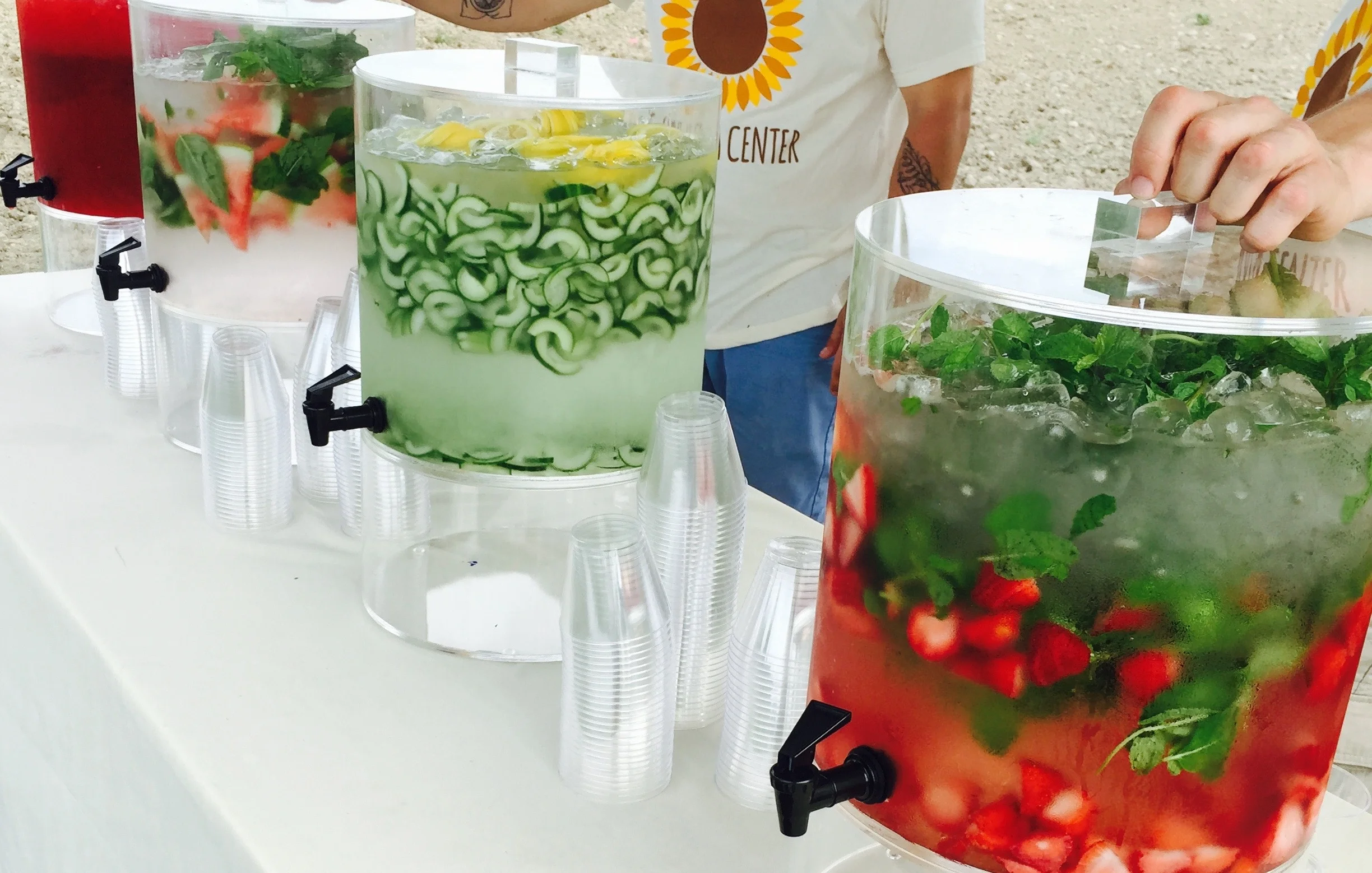The Key to Hydrating Before and After Exercise
Have you ever struggled to finish a workout due to fatigue? Was your skin flushed? Pulse racing? Perhaps hydration played a role in these symptoms. Water is an essential nutrient involved in many body functions such as maintaining body temperature, transporting nutrients, excreting waste and facilitating chemical reactions (1). When we are not properly hydrated, exercise performance suffers.
Why is hydration important?
Because the human body is 60% water, maintaining fluid balance is critical for all body systems (1). To achieve hydration, we need to replace fluids that are lost. Water is lost daily through sweat, urine, stool, respiration and evaporation from the skin (2). If these fluids are not replaced, dehydration may occur, putting stress on body systems.
How do I know if I am hydrated?
Most people can use urine color as a guide. Urine should be light yellow in color. If urine is dark yellow or orange, this might indicate a need for more fluids. Note that some vitamin supplements and medications may independently affect urine color (3).
How does dehydration affect me during exercise?
Early signs of dehydration include thirst, flushed skin, fatigue, increased pulse and increased breathing rate. If dehydration continues, later signs are dizziness and weakness (4).
During exercise, dehydration may result in increased heart rate and body temperature, decreased cognitive awareness, reduced ability to complete exercises and impaired exercise performance (5). Additional factors that may influence performance include the level of dehydration, climate and exercise intensity (6).
How can I stay hydrated before, during and after exercise?
There is no universal strategy for hydration during exercise because every person has different needs (5). Use these general guidelines to establish your hydration plan.
At least 4 hours before exercise, drink 2-3 mL per pound of body weight. For a 150-pound person, this equals about 10-15 ounces of water. Be careful not to drink too much over this recommendation, as over-hydration increases the likelihood of having to use the bathroom during the workout. In addition, over-hydration does not improve exercise performance (2).
During and after exercise, drink adequate fluids to replace what was lost during the workout. For every pound of body weight lost during exercise, drink 16-24 ounces of fluids, preferably water. In some cases of intense physical activity that extends several hours in duration, rehydration beverages to replenish electrolytes may be indicated (2).
How does the environment affect hydration?
In hot and humid weather, the risk of dehydration increases because the body cannot release heat as well as it can in moderate weather. Dehydration can also occur in cold climates. Take extra precautions for hydration when exercising outside in extreme weather conditions (2).
For optimal health and exercise performance, hydrate well throughout the day with water, unsweetened beverages and hydrating foods like fruits and vegetables. For more information on hydration, check out this month’s webinar [insert link here].
References
(1) Liska D et al. Narrative Review of Hydration and Selected Health Outcomes in the General Population. Nutrients 2019;11:70.
(2) American Dietetic Association. Position of the American Dietetic Association, Dietitians of Canada, and the American College of Sports Medicine: Nutrition and Athletic Performance. J Am Diet Assoc. 2009;109:509-527.
(3) Perrier ET. Shifting Focus: From Hydration for Performance to Hydration for Health. Annals of Nutrition & Metabolism 2017;70(suppl 1):4-12.
(4) Wolfram T. Hydrate Right. Eat Right: Academy of Nutrition and Dietetics. May 2018. Available from: https://www.eatright.org/fitness/sports-and-performance/hydrate-right/hydrate-right
(5) Ayotte D and Corcoran MP. Individual hydration plans improve performance outcomes for collegiate athletes engaging in in-season training. Journal of the International Society of Sports Medicine 2018;15:27.
(6) Trangmar SJ and González-Alonso J. Heat, Hydration and the Human Brain, Heart and Skeletal Muscles. Sports Medicine 2019;49 (Suppl 1):569-585.






